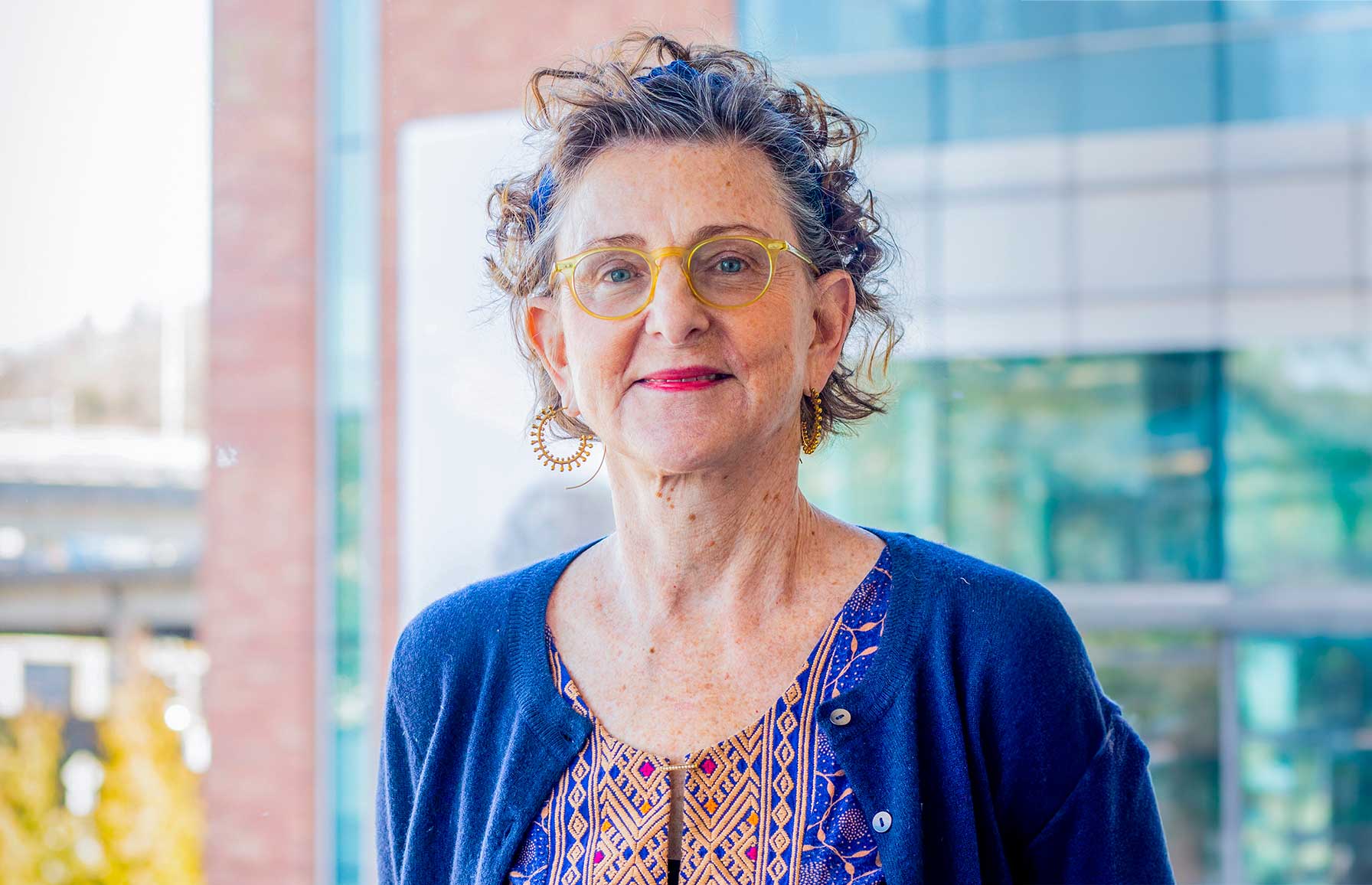
Teresa Brentnall is retiring after nearly 30 years of service
Dr. Teresa (Teri) Brentnall is the Charles and Mary Ann Walters Endowed Chair in Medicine, professor of medicine (Gastroenterology) and pathology. She is also co-director of the Pancreatic Cancer Surveillance Program at the Fred Hutchinson Cancer Center.
Brentnall received her medical degree from the University of Washington in 1987 and completed her residency at UCLA before returning to the UW for fellowship.
As a fellow she became interested in mechanisms of carcinogenesis and extended her training to be mentored by then Division Head, Dr. Cyrus Rubin. Her illustrious career in gastroenterology and pancreatic cancer was launched in 1995, when she was recruited as an acting instructor.
"We have been the beneficiaries of her clinical expertise and scientific contributions since that time and are honored to celebrate her in this next phase of career," said Division Head Dr. Rotonya Carr.
Research
As an R01-funded physician-scientist, Brentnall studied the fundamental mechanisms of carcinogenesis, particularly in colorectal cancer, chronic ulcerative colitis and pancreatic cancer. In her work in colon cancer and ulcerative colitis, she made significant discoveries in neoplastic progression, genetic markers, and molecular events associated with cancer formation. Her studies extended to population-level impact and chemoprevention strategies.
Pancreatic cancer early detection
Brentnall is perhaps most known for her contributions to pancreatic cancer early detection. She applied her investigative principles to the mapping of the pancreatic cancer gene, discovering mutations in palladin, and contributed to potential diagnostic markers and insights into cancer biology.
Her research is internationally recognized for its translational impact. As detailed in her recent review, “Familial Pancreatic Cancer: A Long Fruitful Journey", her drive to make a difference for patients at high risk for pancreatic cancer began when she was a GI fellow.
She took care of a 40-year old patient who had a family history of pancreatic cancer and needed screening at a time when no screening modalities existed for this disease.
Brentnall was not satisfied with the status quo and so undertook the first ever longitudinal pancreatic cancer surveillance study of 14 individuals from 3 families. She learned that the best strategy for early detection included endoscopic approaches (EUS and ERCP) and MRI. Blood tests and CT scans were not helpful.
This paradigm-shifting discovery launched decades of future research fine-tuning these recommendations and served as the catalyst for a consensus conference on pancreatic cancer.
This working group is singularly responsible for solidifying the pathologic findings of pancreatic cancer and pre-cancer and revising its classification in 2015, a classification that remains intact today.
Brentnall realized that these breakthroughs in early detection were critical but could have little impact if not adopted and covered by payors. She undertook a study examining cost effectiveness of testing. And based largely on her contributions to this literature, payors were convinced of the cost-effectiveness making screening possible for those most at risk.
Brentnall now winds down her research career in search of blood-based biomarkers for early detection—a holy grail that continues to elude investigators. She now passes this baton to those behind her, realizing that this discovery is within reach for the next generation of scientists.
In addition to her research contributions, she is a leader in GI. She has been a member of the NIH National Cancer Institute's Pancreatic Cancer Progress Review Group Committee and a founding member of the Pancreatic Cancer Network International Registry.
Teaching
She is also known for her outstanding teaching skills. Her lectures are described as well-prepared, clear, and engaging.
Her passion for education is evident in her interactions with trainees. Peers and trainees alike praise her as a knowledgeable, effective, and inspiring teacher.
She has actively contributed to various committees and initiatives, including serving on the CATPAC Committee for Accelerated Translation of Pancreatic Cancer, the GI Fellows Selection Committee, and as a Preceptor for the GI Fellowship Training Grant.
Her involvement extends to clinical care in the High-Risk GI Cancer Prevention Clinic at the Fred Hutchinson Cancer Care Alliance.
"Teri is an exceptional physician-scientist and colleague who has made substantial contributions to the field of GI and our division," said Carr. "Her impact on the pathogenesis and management of pancreatic cancer will extend for generations to come. While I have had only a short opportunity to get to know her, I feel honored to call her colleague and witness even a small part of her dedication, compassion, humor and commitment to GI."